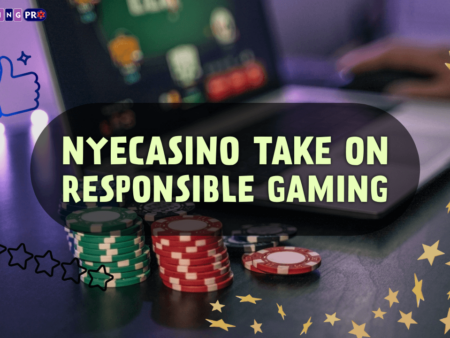
 online and live poker
online and live poker If you're a live poker player looking to transition to online play, it's important to understand some of the key differences that exist so you can adapt your game accordingly. While some aspects remain the same, certain things require a shift in strategy to ensure success. In this blog post, we'll look at some key differences between live. And, online poker and discuss how players can adjust their approach for optimal results.
Speed of Play
One of the most significant changes when transitioning from life to online poker is the speed of play. When playing at a physical casino or home game, players have time to think about their decisions; however, on a virtual platform, players must act quickly to stay ahead of their opponents. To combat this, many experienced players will pre-plan their moves beforehand – such as what hands they will 3-bet with or which continuation bets they intend to make against specific opponents – and then use technology like auto-hotkeys (AHKs) to execute them instantly when required.
Table Selections
In live games, table selection is often based on picking ‘games' with a weak opposition; however, this process is much easier on virtual platforms due to the abundance of information available about our opponents (screen names and player stats). Additionally, through tools such as filters and HUDs – Heads Up Displays – players can narrow the field by selecting only games with ‘loose' or ‘passive' opponents more likely to lose money than others. This approach helps minimize variance and increase profitability over time.
Multi-Tabling
Another major difference between live and online poker is multi-tabling capabilities, which are impossible in a public casino setting due to physical constraints. As such, it's common for experienced online players to play multiple tables simultaneously – a technique known as “multi-tabling” – which allows them to increase their hourly win rate significantly if done correctly! However, mastering this skill can take years of practice. And, requires exceptional focus, so it's important not to get carried away when starting.
Bankroll Management
Bankroll management becomes even more crucial when transitioning from live cash games/tournaments to online ones. With virtual platforms, you don't have to worry about buying being too expensive compared to your chip stack (as is usually the case with land-based casinos), but rather that you're playing within stakes you can afford while still giving yourself room for variance (luck!). As such, it's important to set aside enough money for regular deposits until we've built up our bankroll over time – this way, we don't need to worry about going bust during downswings.
Playing Styles
Players can choose from various playing styles when playing poker depending on their experience level and individual preferences. For example, those with the most experience tend to favor an aggressive approach which involves frequently raising pre-flop. And, betting heavily post-flop to maximize profits. On the other hand, those who prefer a more conservative approach may opt for tight play – by choosing only strong starting hands. Avoiding confrontations with other players until they have a very strong hand (a strategy known as “tight-aggressive”). Meanwhile, beginners should focus on learning the fundamentals before progressing to more complex strategies such as bluffing.
Reads and Tells
Live poker games often involve using physical information to gain an advantage over opponents, such as reading their body language or spotting facial tells. However, this type of ‘reading' is impossible in virtual games due to the lack of physical contact between players. As such, experienced online players must rely on more innovative methods, such as studying their opponent's past performances or how quickly they act during certain situations to figure out what kind of hand they may be holding. This skill requires dedication and practice but can be incredibly powerful when mastered.
Managing Distractions
Playing online poker often presents us with far more distractions than live games do, mainly due to our increased access to technology (such as phones/TVs) while playing from home. To help manage these sources of potential disruption, experienced players will develop routines that enable them to concentrate solely on their gaming sessions – such as putting their phone away for long periods or committing to regular exercise regimes during breaks. Additionally, some may create dedicated “focus rooms” where all electronic devices are banned so that no distractions can steal attention away from the table.
Conclusion
By understanding the differences between both forms; such as speed of play, table selections. And, multi-tabling capabilities – players can better prepare themselves for adapting their strategies accordingly. It's also essential to maintain strict bankroll management regimes. That help us manage our risk appropriately without deviating from safe levels!






























[…] On the other hand, HM Revenue and Customs have no reason to grumble or complain as they get huge fees from online casinos, sports betting sites, bingo platforms, and poker networks. […]
[…] what about baccarat in the live casino? Cheating is impossible there, anyway since all the action is streamed live, and the strict […]
[…] In the classic casino area, there are 9 roulette, 3 blackjack and 8 poker tables. The casino holds poker cash games and roulette tournaments regularly. In the area of slot machines, there are 140 slots from top manufacturers such as Novomatic, EGT, Ainsworth, Aristocrat and WMS. There are progressive jackpots, roulette terminals and video poker machines. […]